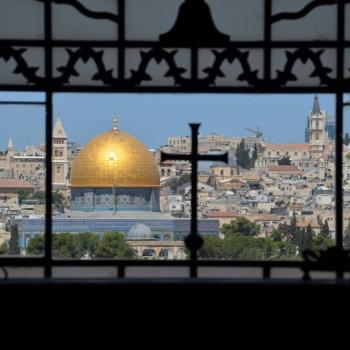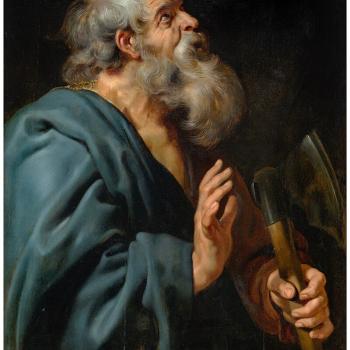Whether you love or hate politics, it’s undeniable that the 2024 election season is upon us. We’re already inundated with ads for various electoral candidates at different levels, even though the United States presidential election far shadows everyone else. A total of 468 seats: 33 senate seats and all 435 house seats are up for reelection on November 5, 2024. From a political perspective, the 2024 election represents the possibility for massive change in United States politics.

If we listen to both sides of the debate, the results of the election will determine the very future of American life. Both conservatives and liberals, Republicans and Democrats believe the fabric of Americana has the possibility to greatly improve or face total destruction. The fate of America’s future supposedly hangs on the 2024 election, with many Christians – especially those unsure about voting – left in the balance.
How can Christians prepare for election season? What should our focus be? Here are eight Christian thoughts for election season.
The massive political divide does not represent the average Christian
Despite terms like “Christian nationalism” and the sense that Evangelical Christians dominate how Christians feel when it comes to politics, this is inaccurate. The majority who identify with “Christian nationalist” ideals rarely, if ever, attend church. They have substituted spiritual values with political ideals. One in four American Christians are persons of color with strong democratic leanings. The majority of Christians support the separation of church and state, abortion rights, and same-sex marriage. While a small percentage of Christian voices might claim to represent the majority view, they do not. What’s more, about half of all voters would replace both presidential candidates if they had the opportunity.
Christianity represents a broad category of beliefs, ideas, and concepts about what it means to follow Jesus. There are Christians representing viewpoints both liberal and conservative, with most falling somewhere in the middle. As a secondary point, not all Christians vote. It’s wrong to assume all Christians feel the same way about politics, the direction of the American nation, and international politics. Keep this in mind when political conversations arise, especially when it comes to the 2024 election. We should never assume how someone else feels on an issue.
None of the candidates are Jesus
Let’s get this next point out of the way: voting isn’t next to godliness. None of the candidates involved in this (or any) election are anywhere near the stature of Jesus Christ. I understand that some feel this statement is an excuse to cop out of politics, but it’s a fact. The leaders of the United States operate by a system of worldly politics that is both antithetical to the Kingdom of God and Christian principle. The intentions of the Founding Fathers are spurious, not to mention their faith lives certainly didn’t measure up to the Evangelical standards of modern times.
No matter who is in office, they don’t represent the spiritual values that define Christian faith. One can be a Christian and vote Republican, Democrat, for a secondary party, or not at all. Our true ruler – Jesus Christ – remains our leader, no matter who might rule a nation on this earth. To compare any earthly leader to Christ – whether in sincerity or in jest – is blasphemy.
No matter who wins, Jesus is still Lord
Whether we like it or not, participate or not, or engage in politics or not, someone will win the 2024 election. History is full of good, bad, and mediocre leaders, all of which seem to ebb and flow in cycles. Regardless of who thinks they are in charge, Jesus is still Lord of all. Whether leaders bow before Him or not, it doesn’t change the fact that He is the One Whose rule truly matters.
As Christians, we bow our knee before Christ, not earthly politics. We shouldn’t be so easily shaken by the thought of different leaders in power. Things may get worse, better, or stay the same, but regardless, we know the end of the story. If Christ is our Lord, we belong to a different Kingdom that has the power to flourish regardless of secular leadership.
No matter who wins, it’s not the end of the world
Politicians would like us to believe that the winners of the 2024 election will either redeem or destroy this world. In religious-like language, voting for one party over another is spoken of in apocalyptic terminology. If one doesn’t vote for that specific party (or better yet, decides to sit this one out all together), civilization as we know it will end.
Contrary to what might be a popular opinion, the fate of the entire world does not rest on this upcoming election. Life, in one form or another, will continue on November 6, 2024 and January 20, 2025. We will still have lives to lead, faith to embrace, and spiritual values to represent. Perspective is essential.
Christians don’t need favorable conditions to be believers
The history of Christianity is a diverse landscape of persecution, political alliance, and the results therein. Overall, periods by which the church and state mixed and mingled never had a good ending. Christians who assume the government must conform to their beliefs so they can be Christian are both theologically errant and missing the point. The early church flourished under persecution, as does the church in many parts of the world today where the faith is prohibitive. The American government doesn’t need to look like, nor resemble a church for Christians to be Christian. If you feel it does, you need to reexamine your faith.
Christian values don’t change
Throughout history, Christian perspectives on issues have changed. What does not change from age to age are the core values of who we are called to be as a Christian people. Such does not rely on any particular party to be in office. Likewise, as our values don’t change, our love for one another shouldn’t, either. Conversations about politics should be had outside of the church. No matter what one’s opinion might be on issues of the day, they should always be welcome at church. As a people inundated by political rhetoric everywhere we go, church should provide a constant reminder that this world – and its issues – are not the end-all, be-all.
Regardless of what’s going on, we are called to be believers
Polls, voter tidal waves, and race predictions sway in different directions. Some are optimistic about the 2024 election, but most are not. American voters live with frustrations in lack of choices, options they don’t prefer, and a negative opinion about the government in general. Most are pessimistic about the economy, job market, and future of this country.
If we put our faith in the government, a party, or a candidate for office, we will find ourselves sorely disappointed. Perhaps the greatest lie we’ve been fed (from all sides) is that the way we vote somehow determines the nature of our faith. Christians of all sorts believe a tick on a voting box is all they need to stand as believers in this world. We are still called to be Christians, regardless of convenience, politics, and circumstances. Whether one gets their way or not, the 2024 election does not determine our faith.
Be not afraid
Perhaps politicians use fear as their greatest motivator, buried underneath clever rhetoric that sounds like intentional concern. Recognizing people have concerns of all sorts, politicians play on those rather than pushing to overcome them. If every American woke up tomorrow and was no longer afraid of foreign attacks, economic depression, the future of this country, or facets about their neighbors, the political landscape of the 2024 election would be very different.
God literally tells us in Scripture to “be not afraid.” There are dozens of different ways He addresses our fears – from prohibiting idol worship to mandating we love our neighbor. Instead of fearing for our futures, it’s a great time to put our faith into action and examine the areas of fear we embrace for ourselves. Recognizing where they come from, let’s overcome them – so politicians cannot exploit us.
In conclusion
The outcome of this election does not have to determine the morality we, as Christians, embrace for ourselves. It’s just as important who we are today as who we will be on November 5, November 6, and beyond. Scripture never tells us to embrace a political worldview, but to offer the world the hope of for a better world. We can proclaim the Kingdom of God in virtue, value, and rule right now, regardless of who is in office. Let’s remember where our true citizenship lies. Come November, whether Trump or Biden wins, there’s still a world that needs to hear, see, and feel the difference the Gospel can make in their lives.
But we are citizens of heaven, where the Lord Jesus Christ lives. And we are eagerly waiting for Him to return as our Savior. (Philippians 3:20, NLT)

















